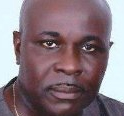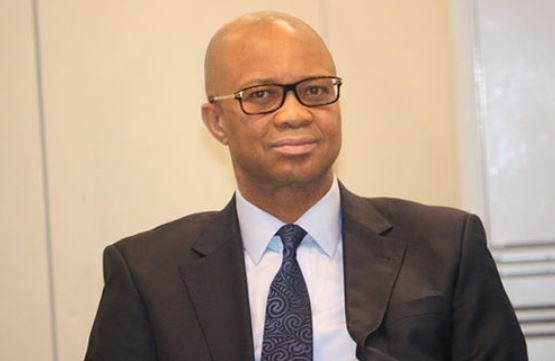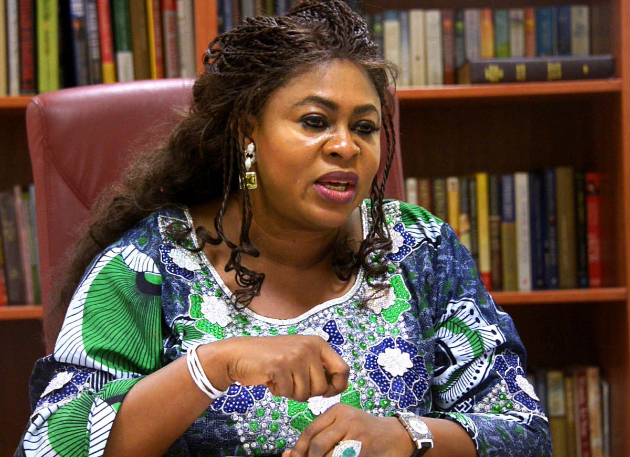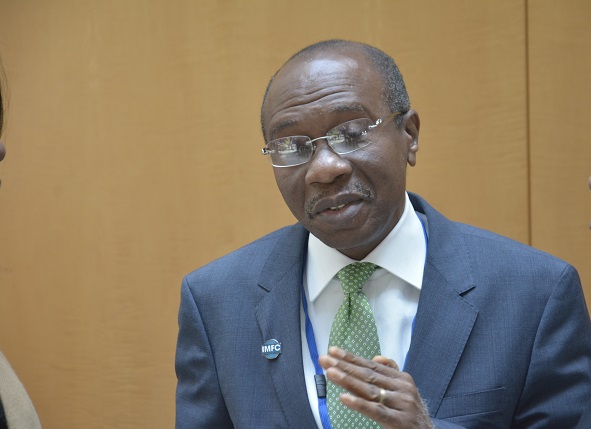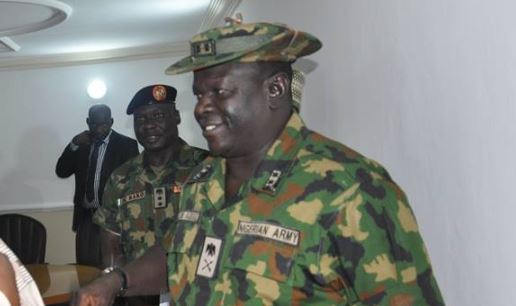The recent resurfacing of Nnamdi Kanu, the uncouth leader of the Indigenous Peoples of Biafra (IPOB) in Israel, raises more questions than answers: How did he escape from the raid by Nigerian security forces on his father’s compound on September 14, 2017? How did he find his way to Israel? And why is he resurfacing just as Atiku Abubakar selected Peter Obi, an Igbo, to be his running mate in the 2019 presidential election?
While the cacophony of grapevine tales and conspiracy theories will make the search for the answers to the above difficult, what is clear is that his reported resurfacing in Israel and subsequent promise to return to the country with ‘hell’ may be one of the variables that could influence the outcome of the election. And the PDP and the Atiku/Obi presidential ticket will be on the receiving end of it all. The APC will obviously (and naturally) politically exploit the intense loathing of Kanu’s brand of rhetoric outside Igboland by creating an association between him and the PDP or the Atiku/Obi ticket. There is nothing illegal or unethical about this. The fear factor remains a major driver of political campaigns and a key determinant of electoral outcomes in all democracies.
It must be mentioned that though Nnamdi Kanu’s support base is mainly the Igbo ‘lumpen proletariat’, the extent of his influence in Igboland remains unproven. For instance when people in the south-east ‘obey’ IPOB orders, it is difficult to know if they do so out of respect for IPOB or out of fear of violence from IPOB activists or because it was something they are already used to doing privately (such as staying away from work or market on 30 May every year in honour of relatives who lost their lives during the Civil War). The same goes for what could pass for Igbo ‘defence’ of Kanu. For instance, I feel that much of the agitation for him to be released from detention was spurred by the defence of ethnic pride than any belief in what he espoused – especially given the perception in Igboland that while he was treated with iron fist, the ‘Fulani herdsmen’ were treated with kids’ gloves. And hastily designating the IPOB as a terrorist group – when it did not meet any single criterion used by terrorism researchers to designate an organization as a terrorist group – was viewed as a slight by many Igbos who were otherwise equally offended by Kanu’s brand of rhetoric. Essentially, therefore, the Buhari government created the Nnamdi Kanu monster and also mismanaged it.
I am not implying that without Nnamdi Kanu agitation for Biafra would have fizzled out. It will not. Historically groups that have fought and lost wars (either civil wars or international wars) have always had elements in their population who are animated by either a desire to revenge the assumed humiliation of their fathers or who will abstract and campaign on a certain idealism projected in the failed separatist bid. For instance, Hitler’s rise to power in Germany as leader of the Nazi Party (and Chancellor in 1933 and Führer in 1934) was facilitated by the nationalism triggered by the humiliating defeat of Germany in the First World War. More than 70 years after Germany was defeated in the Second World War, Nazi symbols such as the Swastika are still used by some far-right groups in Germany and other parts of Europe. In the same vein, in the USA, though the US Civil War ended in 1865 (more than 150 years ago!), there are groups from the Southern parts of the country that insist on flying the confederacy flag (the Beauregard battle flag which was widely used by Southern troops during the Civil War). In essence, the relics of Biafra are likely to be with us for a long time.
Advertisement
How will the resurfacing of Nnamdi Kanu affect the configuration for 2019? The country’s history has shown that in moments of national outrage, there is often a tendency to forge a false consensus that the country has found the solution to its political problems or rather that the ethnic group responsible for all the country’s woes has been unmasked. The concomitant assumption is that once that ethnic group is dealt with (or if possible excised from the country – if it does not have oil), the country will be fine. Thus, at the height of Nnamdi Kanu’s rascality, people talked of the ‘Igbo problem’. Before then we had the ‘Niger Delta problem’ when the Niger Delta Avengers emerged – partly from the government’s errors – and began blowing up pipelines. Until the Buhari government, we had a perennial ‘Yoruba problem’ (because their political preference seemed to focus on their assumed distinctiveness, which led to their glamorizing opposition politics as progressive politics). The current ‘consensus’, following the politicisation of the ‘Fulani herdsmen’ and farmers clashes, is that the ‘Fulani’ is the country’s problem. Nnamdi Kanu’s re-emergence will reconfigure this false and fragile ‘consensus’. While the Fulanis will get a reprieve, Biafra and the Igbo will be in focus. Unless the PDP can manage this effectively, the expected reconfiguring could weaken the Atiku/Obi ticket.
Knives out for Oshiomhole
In the scheming to replace Chief John Odigie Oyegun with Adams Oshiomhole as the Chairman of the APC, some of us cautioned that Oshiomhole would be a disaster for the party. I have never been a fan of Oshiomhole’s rambunctious rhetoric and proclivity for ‘alternative facts’. While Oshiomhole’s backers were ‘packaging’ him as a ‘no-nonsense’ man who would be a game changer for the party, I remained unconvinced. My feeling was that the party would be better off with a person who would have the ability to manage competing oversized egos and the several competing independent centres of power in the Buhari government. I did not feel (and still do not feel) that Oshiomhole has such skills – especially as it appears that his own ego may be even bigger than the egos of the several powerful and prominent people he is supposed to manage (governors, ex-governors, ministers, ex-ministers, senator, ex-senators etc). By definition, the job of being the national chairman of a major political party in the country is an arduous task.
Advertisement
In an article entitled ‘APC Ward Congresses: A Crisis Foretold’ published in this column on May 10 2018, I disagreed with the notion that John Odigie Oyegun’s assumed weak leadership was responsible for the crisis and violence that marred the party’s ward congresses. I argued that the crisis in the APC following the party’s ward congresses was basically the result of President Buhari’s aloofness from both the government and the party and his inability (or unwillingness) to use the force of his personality to instill discipline and direction in the party. For a President admired by his supporters for his self-discipline and almost ascetic lifestyle, it was benumbing that he was unable to inject a modicum of order in his party. As I further observed:
“Occasionally the President would seem to want to take control of the party but would often quickly fade from the conversation, after one or two statements that could be taken as pointers to his leanings.
“Will Oshiomhole be able to galvanize the party better than Chief John Oyegun? I have my doubts. In fact I have always argued that despite his weaknesses, Oyegun’s maturity, taciturnity, deliberate avoidance of the limelight and ability to overlook what several people with big egos would have considered a slight (such as the party being sidelined in major appointments and the President withdrawing support for tenure elongation apparently without taking members of the party executive into confidence) are assets that the APC may have taken for granted. I remain sceptical that Oshiomhole’s brand of aggressive and polarizing rhetoric with perceived political enemies (witness his fight with Tony Anenih, his former godfather) will be better able to manage the huge egos of the party’s prominent members and the numerous independent centres of power they control. I may, of course, be wrong.”
As several Governors and Oshiomhole’s former backers reportedly gang up to have him removed as the party’s chairman, I doubt that his removal will be enough to sanitize the party and heal it from several self-inflicted wounds. Unless President Buhari takes charge as the leader of the party – and is seen to do so – and develop the diplomatic skills to carry other powerful members of the party along, Oshiomhole’s removal will only succeed in swinging the pendulum of power from one or more of the competing centres of power to others.
Advertisement
Just as Nnamdi Kanu’s resurfacing could be a boon to the APC, the PDP too has a chance of capitalizing on the fractionalizations in the ruling party (worsened under Oshiomole’s leadership) to its advantage.
Add a comment
